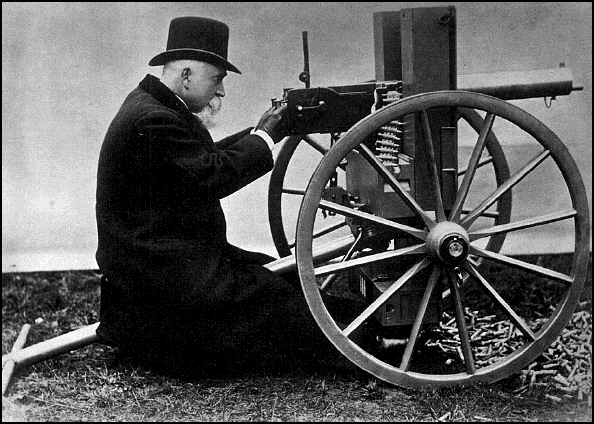Maybe my fondness for the raj was my dad's fault. He was obsessed with Kipling, had every volume he wrote, was able to quote whole passages from Backroom Ballads. Visions of his peaceful, packed (floor to ceiling) library of his and my youth come swirling up when I read the Empire's sing-song apologist,Then belching blunderbuss answered back
The Snider's snarl and the carbine's crack,And the blithe revolver began to sing
To the blade that twanged on the locking-ring,
And the brown flesh blued where the bay'net kissed,
As the steel shot back with a wrench and a twist,
...And over the smoke of the fusillade
The Peacock Banner staggered and swayed...
No matter how naughty it was, some of us are still quite fond of colonialism, and are continually puzzled by the ability of countries as diverse as England, Germany and the United States, with a minimum of military, to hold in thrall entire continents.
Holmes tells us that in 1837, most of India, with a population of at least fifteen million, was kept in check by 37,000 English soldiers. Was it just a clever playing off of one element of the Indian ruling class against another; or was it the manipulation of class against class? There were 629 princely states in India, some had been at constant war with each other for centuries. Did the English, as some have claimed, play them off against each other, continuing to support "the old order" in order to bring on the new.
And, in the end, if you add it all up, was India (or England) made better or worse by the arrangement? Holmes quotes Niall Ferguson:
The question is not whether British imperialism was without blemish. It was not. The question is whether there could have been a less bloody path to modernity.
He thinks not, but the Empire "did bring free markets, the rule of law, and relatively incorrupt government."
The word raj was incorporated into our language in 1850. It's from the Sanskrit rajan meaning "king," and it refers to the English rule in India. The book Sahib, the author explains, does not treat the rights or wrongs of the raj, but concentrates on the very paradox we began with --- "how did a relatively small number of British soldiers gain and retain control of the subcontinent." Why did they choose India, "an environment so different from their own." How did they live there and, "no less to the point, how did they die?"
This last is no small question. The classic Plain Tales from the Raj, tells us that
There were no old people among the British in India. Of the ten young officers who went out with H. T. Wickham in 1904 to join the lndian Police, two died within five months and another six within the decade. Twenty years later, lndia was still taking its toll on the misfit and the unfit...
§ § §Sahib is a fatty, weighing in at more than 550 pages, but somehow, it is scattered, diffuse. The fault we believe is the structure. Holmes has chosen to look to original sources, journals, letters, books, and newspaper articles. The volume is divided into five parts: on the surroundings, getting there (and living there), soldiering, battles, and "India's exiles." Each of these is divided into several further sections, which only manages to give a disjointedness to the whole.
Each of these is divided into several further sections, which only manages to give a disjointedness to the whole.
"The Smoke of the Fusillade" may be the most important part: the raj was, after all, a military occupation of an entire subcontinent. In this, we learn that what was termed "The Mutiny" (1857 - 1859) was but one excursion into an extended series of campaigns, battles, uprisings, including the three Wars of Maratha, Maharajpore, Gwalior, Vellore, Kanmdahan --- along with later excursions into Afghanistan, Burma, and Tibet.
The propaganda out of the raj, even recent histories, have muted the truth of endless battles, the back-and-forth of armies, sometimes of such a size to recall the fields at Waterloo, Gettysburg, Flanders.
The chapter "Sudder and Mofussil" tells of vast numbers of men on the move, accompanied by three camp followers for every soldier, "twelve to fifteen thousand camels, besides elephants, horses, mules, and bullocks."
Another long string of Government camels, carrying the day's supply of grain for the cavalry and artillery horses comes next, as well as what are called troop stores, viz. horse-clothering, head and heel ropes, pickets, nose bags, spare shoes, etc. The supply of grain for one day, for 8,000 horses would require 200 camels for its conveyance. And now comes the private baggage; the tents of the 'sybarite' officers; the spare clothing, blankets, pots and pans of the soldiers, European and Native.
The greatest uprising was named (or misnamed) "The Mutiny," and Holmes is careful to downplay the presumed cause: the introduction of the "Pattern 1853 Enfield." It needed a grease which, if from cows, would offend the Hindus, or if from pigs, the Moslems. But he is quick to point out that there were other troubles brewing all along: apartheid, arbitrary rules --- often changed overnight --- for the "native" soldiers, the onslaught of Christian missionaries who often disparaged the indigenous religions, and no small factor, the coming of soldiers' wives from England, with their simple, ugly prejudice:
The "odious blacks" the "nasty heathen wretches" the "filthy creatures" are the shrill echoes of the "black brutes" the "black vermin" of the husband. The children catch up the strain. I have heard one, five years old, call the man who was taking care of him a "black brute."
§ § §Compiling a whole book from the writings of contemporaries --- of all classes --- may give one a vivid picture of the life and the hardships of service to the raj, but it lacks a cohesiveness. One would do well to prepare for Sahib by studying Plain Tales from the Raj as edited by Charles Allen and published by Holt, Rinehart. Empire: The Rise and Demise of the British World Order and the Lessons for Global Power by Niall Ferguson is an elegant and highly readable summary of the whole bag. For a grand exit for and from the raj, one could do no better than Ackerley's Hindoo Holiday.

The conclusion is inevitable. Her incessant questions about his other loves; his demands that she stop treating him like a child (for indeed, he is the sophisticated one; she, with no experience at all in these types of things (she married young; stayed loyal to husband and job); she is the true innocent; and so of course, it must all come tumbling down.

 Each of these is divided into several further sections, which only manages to give a disjointedness to the whole.
Each of these is divided into several further sections, which only manages to give a disjointedness to the whole.